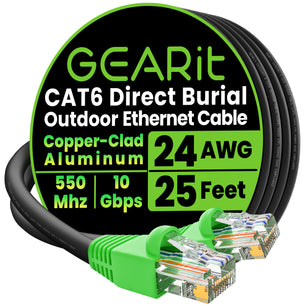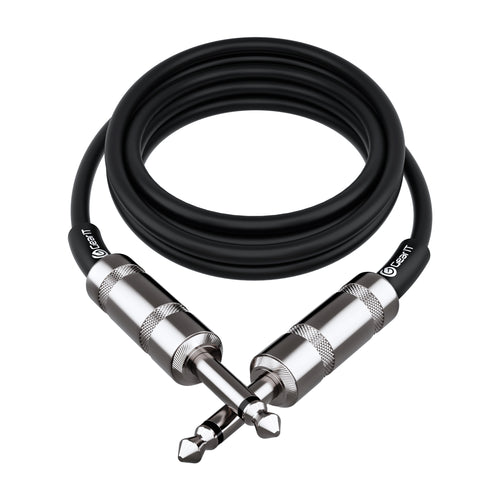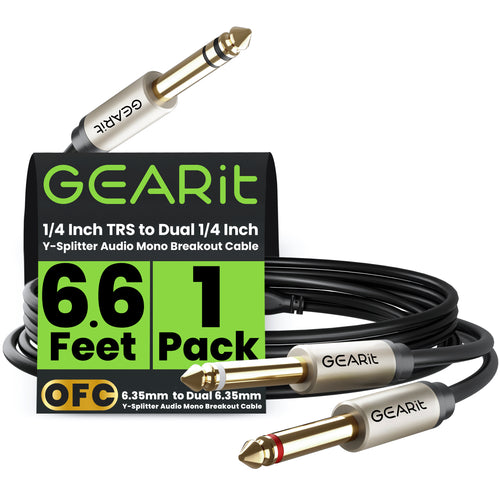
Choosing the best electric guitar brand is essential for your musical journey. A quality brand can greatly influence your playability, tone, and overall style. With so many options available, it's important to find one that fits your skill level, whether you are a beginner or an experienced player.
Each guitar brand offers unique features and designs tailored to various genres, from rock to jazz. Exploring these brands can reveal surprising differences that affect how you play and sound. You might discover that the right guitar can inspire you to create and perform like never before.
Continue reading to explore the best electric guitar brands on the market today and find the perfect match for your music style.
Key Takeaways:
- Different brands impact playability and tone significantly.
- There are options for various skill levels and musical genres.
- Finding the right guitar can enhance your playing experience.
Historical Development of Electric Guitars
The development of electric guitars has significantly shaped music and its sounds. You will find that both the origins and the evolution of notable brands played key roles in this journey.
Origins of the Electric Guitar
The electric guitar emerged in the late 19th century. The first patent for an electric guitar was filed in 1890 by George Breed. His design employed an electromagnetic pickup to amplify sound. This early guitar featured a hollow body that acted as its amplifier.
In the 1930s, the first solid-body electric guitar was introduced. This design change reduced feedback issues common with hollow guitars. The Telecaster and other models soon gained popularity. They offered a bright tone thanks to their unique pickups.
Evolution of Guitar Brands
In the 1950s, Leo Fender introduced mass production with his Telecaster. This guitar became famous for its simplicity and sound. The Fender Stratocaster followed, gaining fame among rock musicians.
Gibson also made important contributions. The Les Paul, introduced in 1952, featured a solid body and humbucker pickups. This guitar became a favorite among many iconic players.
Other brands like Rickenbacker also influenced this evolution. Their innovative designs mixed features from other guitars, attracting new players. Electric guitars have remained essential in music, evolving with technology and style over the decades.
Anatomy of Electric Guitars
Understanding the anatomy of electric guitars is essential for making informed choices. Key components, tonewoods, and pickup types play significant roles in a guitar's sound and playability.
Components and Build Quality
The main components of an electric guitar include the body, neck, fretboard, and hardware.
- Body: The shape and material influence resonance and weight. Common shapes are Stratocaster and Les Paul.
- Neck: Made from various woods, the neck affects playability. It's important to consider neck profile and scale length.
- Fretboard: Usually made of rosewood or maple, it impacts feel and tone.
- Hardware: Includes the bridge, tuning machines, and pickups. Quality hardware ensures better tuning stability and intonation.
Build quality varies across brands. Higher-end models often use premium materials and crafting techniques, which enhances durability and sound.
Tonewoods and Sound Characteristics
Tonewoods are essential in determining the warmth, brightness, and resonance of an electric guitar.
Common Tonewood Types:
- Mahogany: Known for its warm, rich tones and sustain. Often used in solid body guitars.
- Maple: Bright and snappy, maple offers excellent clarity and is typically used for tops and necks.
- Alder: Balanced in tone, it provides a nice punchy sound. Common in a variety of brands.
The combination of tonewoods can significantly shape your guitar's sound. Each wood contributes specific sonic traits, affecting how that guitar interacts with pickups.
Pickup Types and Their Influence
Pickups are vital for capturing and amplifying sound. The type of pickups affects tonal qualities and playing style.
- Single-Coil Pickups: Bright and clear, they produce a sharp, bell-like tone common in Fender guitars. They may pick up interference but are favored for genres like rock and blues.
- Humbuckers: Designed to cancel noise, these pickups deliver a thicker, warmer sound. Common in Gibson guitars, they are perfect for heavier styles.
- P-90 Pickup: A type of single-coil with a thicker sound. It's versatile and popular for its midrange punch.
Understanding pickups and tonewoods gives you insights into the guitar's overall performance.
Best Electric Guitar Brands of all Time

When considering the best electric guitar brands, several names stand out for their innovation, iconic models, and craftsmanship. Each brand offers distinct styles and features, making them a top choice among musicians.
1. Fender and Its Legacy
Fender is synonymous with electric guitars. Founded in the 1940s, it introduced models like the Stratocaster and Telecaster, which have shaped music history. These guitars are known for their unique tones and versatility across genres.
The Stratocaster features a contoured body for comfort and three single-coil pickups, providing bright and clear tones. The Telecaster, simpler in design, delivers a punchy sound favored in rock and country. Fender also offers Squier by Fender for budget-friendly options without sacrificing quality.
2. Gibson's Iconic Models
Gibson is another leading name in the guitar world, famous for its Les Paul and SG models. The Les Paul is revered for its rich, warm sound and sustain, often used in rock and blues. With a solid mahogany body and dual humbucker pickups, it offers a powerful tone.
The Gibson SG, a lighter alternative, is known for its aggressive sound and playability, favored by many rock legends. Both guitars hold a significant place in the history of music, as numerous famous guitarists have played them.
3. PRS's High-End Craftsmanship
PRS (Paul Reed Smith) guitars are known for their high-end craftsmanship and stunning visuals. They combine traditional design with modern innovation, offering a wide range of models. The Custom 24 is one of their flagship guitars, featuring a versatile sound due to its dual humbucker pickups and a carved maple top.
PRS guitars often include unique features, like the bird inlays and ergonomic body shapes. Their attention to detail appeals to professionals who seek both quality and aesthetics. Signature models from artists such as Carlos Santana highlight their commitment to both artistry and playability.
4. Ibanez and Shred Culture
Ibanez has carved a niche in the guitar market, especially among rock and metal musicians. Known for their fast-playing necks and innovative designs, Ibanez guitars are a favorite for shredders. Models like the RG series deliver excellent playability and sound.
These guitars usually feature thinner bodies, allowing for easier handling during fast solos. They also incorporate diverse pickup configurations, which enhance tonal versatility. Many Ibanez guitars come with signature models created in collaboration with renowned musicians like Steve Vai and Joe Satriani.
5. Yamaha's Versatility
Yamaha is recognized for producing a wide range of musical instruments, including electric guitars. They are known for their affordability and versatility, making them a popular choice for beginners and experienced players alike. The Pacific series offers solid, dependable guitars at a reasonable price.
Yamaha incorporates modern technology and traditional craftsmanship in their designs. Features like active pickups and unique body shapes provide a broad spectrum of tones. Whether you play rock, blues, or jazz, Yamaha guitars can meet your needs effectively.
Guitars Brands for Different Genres

Choosing the right guitar depends on the style of music you want to play. Each genre has specific sounds and characteristics, making certain guitars more suitable than others. Here’s a look at guitars crafted for various musical styles.
Best Guitars for Metal
Metal music demands guitars that can produce powerful sound and strong sustain. Brands like Jackson and Ibanez are leaders in this category.
- Jackson Rhoads: This model is known for its sharp design and aggressive tone. It's great for fast solos and heavy riffs.
- Ibanez RG Series: Offers versatility and playability, with super thin necks ideal for speed.
A high-output pickup can give you the punch needed for palm muting and fast picking.
Blues and Jazz-Optimized Guitars
Blues and jazz often require a warmer, richer tone. Hollow-body and semi-hollow guitars are popular in these genres.
- Gibson ES-335: This guitar is favored for its deep, resonant sound. It’s an iconic choice for both blues and jazz.
- Fender Jazzmaster: With its unique sound and aesthetic, it works well for jazz players who want versatility.
These guitars typically feature single-coil pickups, giving you a bright, clean tone desirable for these styles.
Country Twang: Finding the Perfect Fit
Country music features a distinctive twang and crisp sound. Telecasters and certain acoustic guitars are common choices for country players.
- Fender Telecaster: Known for its sharp tone and clarity, making it a staple in country music.
- Gibson J-45: A high-quality acoustic guitar that delivers a warm, balanced sound suitable for strumming.
These guitars enhance the storytelling quality of country songs, thanks to their unique tonal characteristics.
Rock 'n' Roll Guitars
For rock 'n' roll, guitars must possess raw power and a dynamic range. Models from Gibson and Fender often face off in this genre.
- Gibson Les Paul: Recognized for its sustained, thick sound. Great for distortion with a rich tone.
- Fender Stratocaster: Offers brightness and clarity; popular for solos and riffs.
You’ll find a wide range of tones that fit everything from classic rock to pop-rock with these guitars.
Punk and Indie Favorites
Punk and indie music lean towards straightforward and gritty sounds. Guitars that are simple and durable are key in these genres.
- Fender Mustang: Known for its short scale, this guitar is easy to handle and ideal for quick playing.
- Gibson SG: Features a lightweight body and powerful pickups, suitable for the high-energy demands of punk.
These guitars bring a rebellious edge to your sound, making them favorites among punk and indie musicians.
Selecting Your First Electric Guitar

Choosing your first electric guitar is an exciting step in your musical journey. It’s important to find an instrument that fits your style and budget. Here are some affordable options and features to consider when making your selection.
Affordable Options for Beginners
When starting, look for guitars that provide quality without breaking the bank. Squier is a top choice for beginner electric guitars. Their models, like the Squier Classic Vibe '50s Strat, are known for playability and comfort.
Yamaha offers great value with guitars such as the Pacifica 112V, which is praised for its quality and versatility.
Epiphone also provides affordable versions of classic designs, like the Gibson Les Paul.
Lastly, for modern features, consider the PRS SE Custom 24, known for its smooth play and ergonomic design. All these brands offer solid entry points to begin your guitar journey.
Features to Look for in Starter Guitars
When selecting your first guitar, focus on playability and comfort. A well-set neck and lighter body can make practicing easier.
Look for models with humbucker pickups for richer tones. This is especially beneficial if you enjoy rock or blues music.
Single-coil pickups are ideal if you prefer lighter, sharper sounds, typical in genres like pop or country.
Check the guitar's weight and how it feels while playing. For a beginner, fretboard accessibility is also key, so opt for guitars with a comfortable neck shape.
Choosing an electric guitar with modern features, like coil-splitting and good tuning stability, can enhance your playing experience.
Innovations and Modern Features
Electric guitars have come a long way in terms of technology and design. Today’s models incorporate advanced features that improve playability, sound quality, and versatility. This section covers cutting-edge guitar technology and future design trends that can enhance your playing experience.
Cutting Edge Guitar Technology
Recent innovations in guitar technology have transformed high-end guitars. Brands like Ernie Ball Music Man focus on build quality and quality control. Many guitars now feature active pickups that offer higher output and clearer sound.
Modular designs allow for easy swapping of pickups and components, giving you the freedom to customize your instrument.
Some models incorporate onboard effects like EQ and reverb, which eliminate the need for external pedals. Smart connectivity is also becoming common. You can connect your guitar to apps for tuning, practice, and recording.
These advancements cater to a variety of playing styles and preferences, ensuring you get a versatile guitar that meets your needs.
The Future of Guitar Design
Looking ahead, guitar design is set to evolve further. Manufacturers are experimenting with new materials for lighter instruments that don’t sacrifice sound quality. Carbon fiber and composite materials are gaining traction, offering durability and a unique tonal quality.
Ergonomic shapes are being developed to improve comfort, making it easier for you to play for extended periods. Some companies are exploring sustainability, creating eco-friendly guitars without compromising on tone.
With tech integration, expect to see guitars equipped with Bluetooth and smart features that allow for new levels of interaction. These innovations not only enhance sound but also make playing more enjoyable and accessible for everyone.
Special Editions and Signature Models
Special edition and signature models are designed to give you a unique playing experience. These guitars often reflect the style and preferences of renowned artists and represent a blend of functionality and artistry.
Celebrity-Inspired Designs
Many famous musicians inspire electric guitar designs that bear their names. These signature models are crafted to reflect their sound and style.
Popular Examples Include:
-
Gibson ES-335: This classic semi-hollow body guitar is loved by artists like Jimmy Page. It offers a warm tone, perfect for blues and rock.
-
Fender American Pro II Stratocaster: This model features upgrades over its predecessor, including better pickups and a comfortable neck. It remains a favorite among many guitarists for its versatility.
-
Jackson American Series Soloist SL3: Known for its fast playability, this guitar is designed for rock and metal musicians. Its powerful humbucker pickups provide a strong sound.
These guitars let you connect with your favorite artists while offering top-notch performance.
Collectible and Vintage Electric Guitars
Collectible and vintage electric guitars hold a special place in the hearts of players and collectors alike. They often appreciate in value, making them great investments.
Key Features of Collectible Guitars:
-
Rarity: Models that are limited edition or produced in smaller quantities tend to be more sought after.
-
Condition and Age: Guitars like vintage Fender Telecasters are celebrated for their craftsmanship and historical value.
-
Provenance: Instruments with a connection to famous musicians can command higher prices. For example, vintage models owned by rock legends often attract collectors.
Owning a collectible electric guitar not only enhances your collection but can also become a valuable asset.
Understanding Electric Guitar Maintenance
Taking care of your electric guitar is essential to keep it playing well and looking good. Proper maintenance can extend the life of your instrument and enhance its performance. Learn what tasks you can do yourself and when it’s best to ask for help.
Keeping Your Guitar in Top Shape
Regular cleaning is vital to maintain your guitar's appearance and functionality. Use a soft, lint-free cloth to wipe down the body and neck after each use. This removes dirt and prevents buildup.
Use fret polish sparingly to keep the fretboard smooth and clean. If you notice grime, apply a slightly damp cloth carefully. Avoid moisture around your guitar as it can damage the wood and electronics.
Check the strings regularly. Replace them if they feel rough or sound dull. Store your guitar in a case in a controlled environment to protect it from humidity and extreme temperatures.
When to Seek Professional Repairs
Knowing when to take your guitar to a professional is key. If you have tuning issues that persist despite your efforts, it may indicate a more serious problem. Problems with the tuning pegs or the nut often require professional attention.
Also, if you notice buzzing sounds while playing, it might mean the frets need adjustment or the neck requires a setup. A professional can assess the quality control of more complex features, like locking tuners or floating bridges.
Remember, hiring an expert ensures the repairs are done correctly, keeping your instrument in optimal condition. Don’t hesitate to reach out to a local guitar store for advice or service.
The Impact of Electric Guitars on Music Culture
Electric guitars have transformed music culture in significant ways. Their sound and style have shaped genres, inspired artists, and become symbols of rebellion and creativity.
Electric Guitars in Mainstream Media
Electric guitars are central to many popular music styles, especially rock. Movies, television shows, and advertisements frequently feature electric guitar riffs to evoke excitement and energy. Iconic scenes, like those in rock concerts or music festivals, often highlight guitar solos that captivate audiences.
This presence in media reinforces the guitar’s role as a cultural symbol. Shows like Glee and Austin Powers showcase famous guitar solos, further embedding them in popular culture. Brands often use guitar music in commercials to connect with younger audiences and tap into the rebellious spirit associated with rock music.
Guitar Icons and Their Influence
Many guitar players have become legends, significantly impacting music and culture. Artists such as Jimi Hendrix, Eric Clapton, and Eddie Van Halen are renowned for their innovative techniques and unique sounds. They have inspired countless musicians and shaped various genres.
Hendrix, with his wild performances and use of feedback, changed what people expected from live music. Clapton’s bluesy style brought depth to rock. Each guitar icon proves that electric guitars can express personal and emotional stories, influencing not just music but lifestyles. Their contributions continue to inspire new generations of guitarists, keeping the electric guitar at the center of music culture.
Conclusion
To wrap up, the five best electric guitar brands of all time have set the standard for quality and sound in the music world. Whether you're a beginner or a seasoned player, choosing a guitar from these top brands can enhance your playing experience and help you create amazing music. Each brand offers unique features and styles, making it easy to find the perfect guitar for your needs.
Ready to start your musical journey? Check out the Valley Series 39” Electric Guitar Starter Kit and audio cables from Gearit.
They offer everything you need to get started and sound great. Visit Gearit today and find the perfect gear for your music!
Frequently Asked Questions
When looking for the best electric guitar brands, it’s helpful to know specific brands, especially if you're a beginner or looking for quality sound. Here are some common questions that can guide your choice.
Which brand is best for electric guitar?
Fender is often considered the top choice for electric guitars. Their models, like the Stratocaster and Telecaster, are widely regarded for their playability and sound. Gibson is another strong contender, known for their Les Paul series, which offers a rich tone.
What's the best beginner electric guitar brand?
Squier, a subsidiary of Fender, is a great option for beginners. They offer affordable models that maintain quality and playability. Epiphone, the sister brand of Gibson, also produces excellent entry-level guitars that provide good sound and build quality.
What is the greatest electric guitar?
While opinions vary, the Fender Stratocaster is frequently seen as the greatest electric guitar. It's versatile and used across many music genres. The Gibson Les Paul also receives high praise for its sustain and tonal richness.
Which guitar brand has best sound quality?
For sound quality, many players prefer Gibson for its warm and rich tones. Fender guitars also provide great sound, especially for clean and bright tones. Each brand has unique characteristics, so it’s best to try a few to find what you like.
What to avoid when buying an electric guitar?
Avoid brands with poor reputation or reviews. Check for build quality, as cheaper materials can lead to issues. Make sure to test the guitar before buying to ensure it feels and sounds right for you.




























































